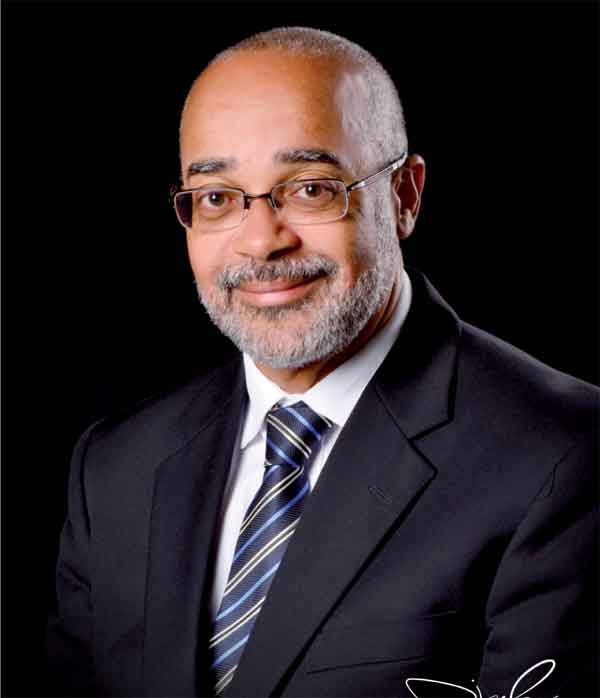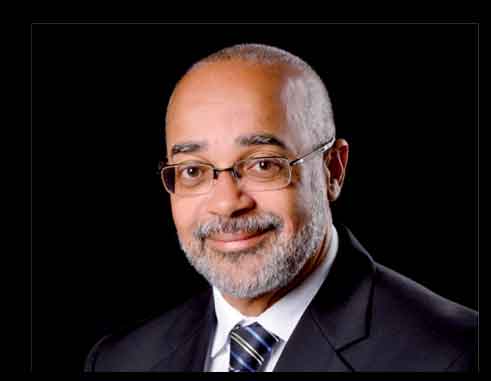
DIRECTOR General of the OECS, Dr Didacus Jules threw out a challenge to Tourism Ministers of the sub-region to define what they sell before subjecting their limited budgets into the marketing of their tourism product.
Jules was at the time addressing the second meeting of the OECS Ministerial Council on Tourism in Grenada, Thursday morning.
Said Jules to the grouping which comprised mainly Tourism Ministers: “Too much of our limited budgets are thrown into marketing when in many instances we cannot even clearly define what our unique selling point is.”
Jules then threw out a question to the Ministers that underscored the meeting’s theme “OECS Economic Union – Pushing the Tourism Envelope.”
“So how do we as the most tourism dependent region in the world remain competitive in light of intensifying competition? How do we push our tourism envelope? We must start by reviewing, juxtaposing, diversifying and re-configuring the product that we are offering for export,” he said.
Jules added that tourism is not just about bringing visitors to the islands, but more about getting those persons to spend much needed foreign exchange in the islands to improve the living standards in the islands.
“So it makes practical sense to offer tourists a wide variety of engaging activities that will entice them to not only visit but to spend,” he said.
He called on OECS countries that submit beach offerings as their main core offerings to make this just one of a diverse mix of offerings so as to present the leisure traveller with a rich menu of things to do.
“Contemporary tourism demand is characterized by very strong emphasis on the local and the unique in the destination. Local is increasingly becoming a prerequisite for luxury and boutique offerings such as small boutique hotels that are becoming gateways to the authentic character of a destination. The rising interest in culinary offerings, exploration of cultural traditions, arts and crafts are providing context for new product development and service design with appealing revenue potential. It is for these reasons that I have been extremely supportive of the OECS Community-based Tourism programme,” Jules said.
He said that OECS Commission has recognised that pushing the tourism envelope will not reap desired benefits if there is not greater involvement of all relevant players, particularly the private sector which represents the crux of the industry.
Jules added: “One week after taking up the baton as Director General of the OECS, I was invited to deliver the feature address to commemorate the Saint Lucia Hotel & Tourism Association’s 50th Anniversary. I started my speech by advising that my role as Director General is to facilitate the inclusion of the voices and vision of key industry stakeholders in the shaping of that competitive response in the Single Economic Space. I contended that If as is glibly asserted, tourism is everybody’s business, then the conversation about its future must involve all the relevant everybodies. It is in light of this tenet that we will be seeking to establish a Network of Hotel and Tourism Associations in the OECS. Our job therefore at the OECS Commission is to initiate that conversation in which we can honestly dialogue, debate and debunk the issues in a search for consensus on an integrated way forward”.
He added that within the wider regional grouping, the OECS is arguably best positioned to actualize and pioneer a harmonized approach to marketing and multi-destination collaboration.
Jules went on: “Ultimately we would seek to create an OECS destination brand that amalgamates the unique features and comparative strengths of each member state into that unified identity. This will make the tourism product more exciting than any single territory can achieve and optimize visitor experience, spend and retention. Strategic partnerships with Martinique, Guadeloupe and St. Martin for expanding intra-regional travel from their jurisdictions and for facilitating multi-destination access for visitors from their European gateway also present promising potential. The Asean region, the Baltics, Scandinavian and Central European countries are good examples to learn from in our bid to regionalise Tourism in the OECS. As the World Economic Forum puts it: Cooperation is the new Competition. Not just cooperation among countries but also public-private sector cooperation. Pushing the tourism envelope also behoves us to move with the times. Technological, socio-economic and cultural forces are driving people to travel internationally more than ever before. The emergence and increasing prevalence of mobile technology is one of the most influential trends expected to shape the future of the travel industry”.
Jules wants the gap between the marketing styles of OECS countries and the communication behaviour of contemporary travellers close, a gap which is said to be significant by a 2015 World Bank report.














